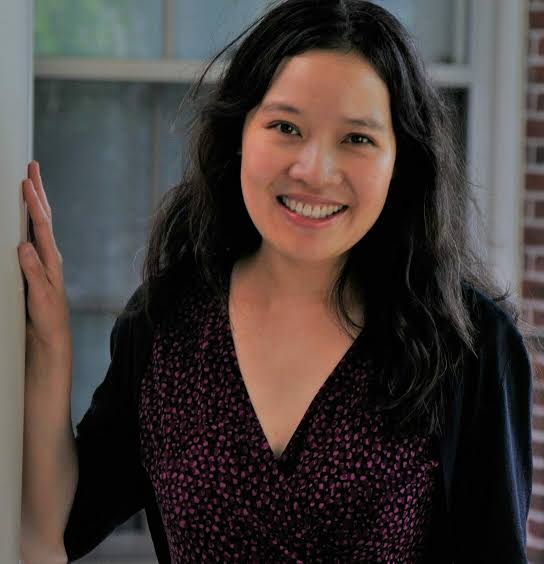Rowena He
Shtetl-Optimized 2023-12-20

This fall, I’m honored to have made a new friend: the noted Chinese dissident scholar Rowena He, currently a Research Fellow at the Civitas Institute at UT Austin, and formerly of Harvard, the Institute for Advanced Study at Princeton, the National Humanities Center, and other fine places. I was connected to Rowena by the Harvard computer scientist Harry Lewis.
But let’s cut to the chase, as Rowena tends to do in every conversation. As a teenage girl in Guangdong, Rowena eagerly participated in the pro-democracy protests of 1989, the ones that tragically culminated in the Tiananmen Square massacre. Since then, she’s devoted her life to documenting and preserving the memory of what happened, fighting its deliberate erasure from the consciousness of future generations of Chinese. You can read some of her efforts in her first book, Tiananmen Exiles: Voices of the Struggle for Democracy in China (one of the Asia Society’s top 5 China books of 2014). She’s now spending her time at UT writing a second book.
Unsurprisingly, Rowena’s life’s project has not (to put it mildly) sat well with the Chinese authorities. From 2019, she had a history professorship at the Chinese University of Hong Kong, where she could be close to her research material and to those who needed to hear her message—and where she was involved in the pro-democracy protests that convulsed Hong Kong that year. Alas, you might remember the grim outcome of those protests. Following Hong Kong’s authoritarian takeover, in October of this year, Rowena was denied a visa to return to Hong Kong, and then fired from CUHK because she’d been denied a visa—events that were covered fairly widely in the press. Learning about the downfall of academic freedom in Hong Kong was particularly poignant for me, given that I lived in Hong Kong when I was 13 years old, in some of the last years before the handover to China (1994-1995), and my family knew many people there who were trying to get out—to Canada, Australia, anywhere—correctly fearing what eventually came to pass.
But this is all still relatively dry information that wouldn’t have prepared me for the experience of meeting Rowena in person. Probably more than anyone else I’ve had occasion to meet, Rowena is basically the living embodiment of what it means to sacrifice everything for abstract ideals of freedom and justice. Many academics posture that way; to spend a couple hours with Rowena is to understand the real deal. You can talk to her about trivialities—food, work habits, how she’s settling in Austin—and she’ll answer, but before too long, the emotion will rise in her voice and she’ll be back to telling you how the protesting students didn’t want to overthrow the Chinese government, but only help to improve it. As if you, too, were a CCP bureaucrat who might imprison her if the truth turned out otherwise. Or she’ll talk about how, when she was depressed, only the faces of the students in Hong Kong who crowded her lecture gave her the will to keep living; or about what she learned by reading the letters that Lin Zhao, a dissident from Maoism, wrote in blood in Chinese jail before she was executed.
This post has a practical purpose. Since her exile from China, Rowena has spent basically her entire life moving from place to place, with no permanent position and no financial security. In the US—a huge country full of people who share Rowena’s goal of exposing the lies of the CCP—there must be an excellent university, think tank, or institute that would offer a permanent position to possibly the world’s preeminent historian of Tiananmen and of the Chinese democracy movement. Though the readership of this blog is heavily skewed toward STEM, maybe that institute is yours. If it is, please get in touch with Rowena. And then I could say this blog had served a useful purpose, even if everything else I wrote for two decades was for naught.